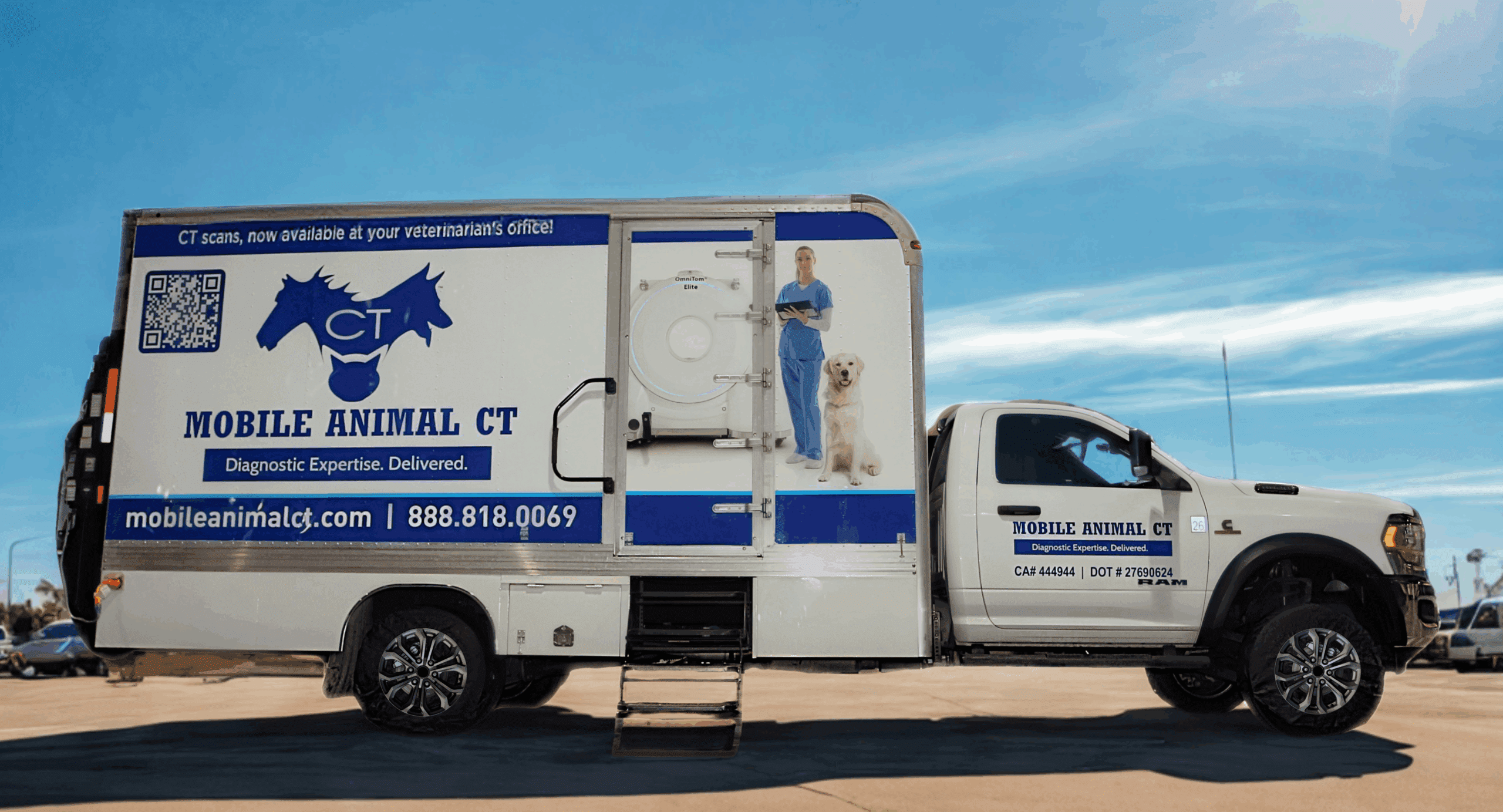The Mobile Animal CT Story
Early in Dr. Jonnie Quantz’s veterinary career, CT became her preferred diagnostic imaging modality when ultrasound, radiography, and/or blood work didn’t provide sufficient information.
“CT enabled me to help my clients make better decisions for their pets,” she says. Plus, technicians could be quickly trained to acquire excellent CT images, and telemedicine enabled veterinary radiologists to read these high-quality images from practically anywhere.
“I wanted to make this diagnostic tool accessible to as many veterinarians as possible,” she continues. “But CT equipment was expensive, requiring significant structural modifications and massive upgrading of a hospital’s electrical systems. If only there were a way to give practices access to a CT scanner on demand—just when it was needed, with no big financial investment.”

Advances in CT Technology
Technology advances soon made Dr. Quantz’s “if only” possible. In 2005, Neurologica (a subsidiary of Samsung), developed the first in their line of portable CT machines. This scanner was introduced in human medicine and was soon being used in emergency rooms, ICUs, neurosurgical operating rooms, and mobile stroke units.
“It was a compact, lightweight, portable, internally shielded, high-speed helical CT scanner with a small footprint, and it required no additional external shielding, no dedicated room, and no expensive electrical upgrades,” she says.
This scanner, the CereTom, opened the door to affordable, efficient veterinary CT scanning, and proved to be easily adaptable in the mobile field. MACT now has both the CereTom and the OmniTom available on the scan trucks.
Mobile Animal CT Launches
In 2011, Dr. Quantz launched Mobile Animal CT (MACT) in Southern California, enabling the region’s veterinarians to take advantage of the best and most modern CT imaging equipment in their own hospitals—on an as-needed basis, with no financial outlay. In 2019, the company expanded into Arizona, with other areas slated to come on board soon.
Today, we use a fleet of specially designed trucks, each equipped with one of Neurologica’s innovative, mobile CT scanners and staffed by a team of two registered/certified veterinary technicians. MACT enables all practices to offer advanced diagnostic CT imaging on site—without the overhead involved in owning their own CT machine.
But most importantly, we deliver what matters most: Answers.
